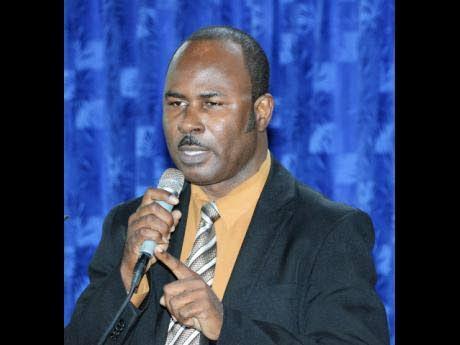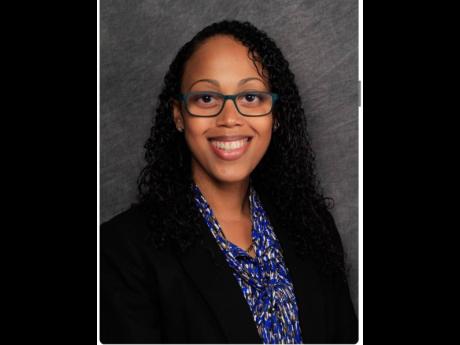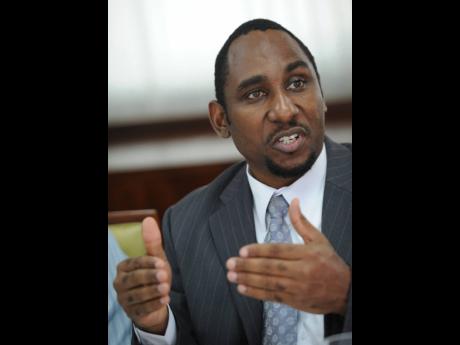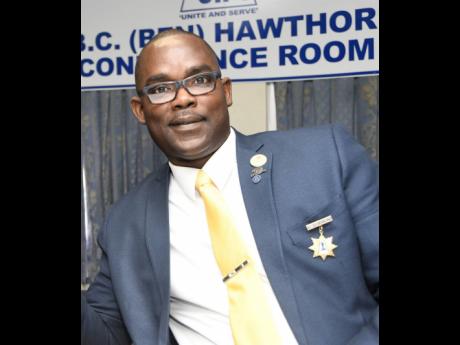Common assault on police
Cops say suspension without pay arbitrary, unfair compared to other gov’t workers
Members of the Jamaica Constabulary Force (JCF) believe they receive the harshest treatment among public sector workers who commit infractions that lead to disciplinary action resulting in suspension or interdiction. In fact, there are some police...
Members of the Jamaica Constabulary Force (JCF) believe they receive the harshest treatment among public sector workers who commit infractions that lead to disciplinary action resulting in suspension or interdiction.
In fact, there are some police personnel, especially from the rank and file (from constables to inspectors), who have been languishing for as many as 13 years on suspension without pay, with no end in sight.
According to the rules that govern the JCF, the police commissioner – often with the input of immediate senior and supervising ranks – is solely responsible for determining sanctions for offending members of the Force. Options allowed are suspension, interdiction, and administrative leave with or without pay.
Currently, 88 members are on suspension from the JCF, and another 78 are interdicted. While it is customary that those on suspension receive no salary, currently eight of the total suspended are on full salary, The Gleaner was told.
“You have some members of the Force who have been suspended for as long as 13 years. Some are mere allegations but are still out on suspension. The majority are suspended for duty-related matters. It’s ad hoc, but all are rank and file membership. The sad part is that the justice system treats police matters differently,” shared Jamaica Police Federation chairman, Corporal Rohan James, who did not give details about the case of the eight who are on full salary.
“It’s a travesty of justice that the State treats police as guilty until proven innocent, while others are innocent until proven guilty,” James added.
The leadership of the JCF has for years complained about the difficulty faced by a commissioner of police in dismissing members.
‘POLICE A NUH NOBODY’
Former police chief Trevor MacMillan had dismissed then Sting (Boxing Day dancehall fest) promoter Isaiah Laing from the JCF but the dismissal was overturned by the courts and he was reinstated. Since then, commissioners have used suspension and interdiction, which has left many careers hanging for years.
One reinstated detective sergeant said he and three colleagues were interdicted in 2007, receiving three quarters of their salary and no benefits. The government-issued firearm was also recalled.
“Luckily, the three-quarter salary could pay my mortgage and so I wasn’t sleeping on the streets. I also had a personal firearm, because I am still a police. People in the community still sought my intervention on matters,” said the still service member.
“The case was resolved in our favour in 2011 and we were reinstated about three months later.”
A policewoman reinstated after several years, in 2019, was not amused.
“The same disrespected police are expected to go and arrest people like Ruel Reid and Fritz Pinnock, only for them to be getting nearly $12 million between the two of them. Just imagine if the same police who arrest them get suspension. They get suspension without pay. Is because police a nuh nobody,” she said, asking to remain anonymous.
The Gleaner reported a few weeks ago that the two men – Reid, who was seconded from Jamaica College where he was principal to become the education minister, and Pinnock, as head of the Caribbean Maritime University – were receiving salaries while currently before the courts on a number of fraud-related charges. The information has ignited debate with both supporters and opposers.
The plank of the justice system is innocent until proven guilty; however, it was not immediately clear if any public official found guilty has repaid any or part of salaries paid to them while on suspension or interdiction.
The policeman woman continued: “The children of the well-heeled in the society are not in the force. If so, they come in as officers. They never face a gunshot or angry citizens when police do the right thing and citizens lie. On top of all that, they get other ordinary police to chauffer them.”
This unfair treatment is among a slew of many that the Federation will be asking the courts to address.
Given the differences in treatment of the police compared to other public sector workers, a ruling in the affirmative could usher a wave of changes, said the Federation.
TEACHERS TREATED BETTER
Teachers appear to be among the most generously treated in public sector disciplinary policy.
The Education Regulations of 1980 is said to be “overly generous” to the island’s teachers. Amendments have been resisted to the more than 40-year-old regulations by stakeholder groups, including the Jamaica Teachers’ Association (JTA), the only union representing teachers in Jamaica.
Section 60 subsection (2) states that a teacher on suspension cannot lose more than 25 per cent of their salary. At the end of trial if a favourable decision is made on the teacher’s behalf, the withheld salary is repaid.
New JTA President Winston Smith said he was not aware of any case of a teacher facing disciplinary action at this time.
Civil and public servants are liable for suspension and interdiction and losing a portion of their salaries.
“Civil servants are a subset of public officers who work in the central civil service. They are a part of the public service. The public service is all ministries, departments, agencies, statutory organisations and government-owned and controlled companies,” explained O’Neil Grant, president of the Jamaica Civil Service Association (JCSA), last week during an interview on RJR’s Beyond the Headlines.
It was not immediately clear who decides on whether a suspended or interdicted civil servant gets any proportion of their salary. It was not known how many, if any civil servants are on suspension, or interdiction. There was no response from the Office of the Service Commission seeking that detail last week.
Reid and Pinnock are public servants.
“There is no set process or guidance outside of what is in the Regulations and the Disciplinary Policy for Public Bodies,” Grant stated.
The policy runs a gamut of informal and formal procedures, disciplinary enquiry, penalty and appeal. Penalties include verbal warning, first warning, final warning, suspension and dismissal.
PUNISHMENT DEPENDS ON THE MATTER
The Medical Council of Jamaica is the final arbiter on ethical issues involving doctors, said Jamaica Medical Doctors Association (JMDA) president, Dr Mindi Fitz-Henley.
“Issues are reported to consultants, then head of department, then human resources. It varies widely depending on what the issue is. If it is a matter of negligence, or something similar, they have to open an enquiry and medically check to see if it is actually negligence, but most times it is not,” she explained.
“Otherwise the person is brought to a disciplinary committee and the matter is heard. If necessary, punishment is given.”
Punishment is dependent on the matter, she said, and could include criminal liability. Licences may also be withdrawn and issues are handled at the institution level or at the Ministry of Health through its disciplinary board.
A former JMDA executive told The Gleaner that doctors suspended from an institution in the public sector receive no pay, and may opt to work in private practice. Licences may also be suspended for a period, and in rare instances, for good.
Doctors at the consultant level are represented by the Association of Government’s Consultants.
Only the Jamaican Bar Association (JBA), the body representing lawyers in Jamaica, provided a list of members struck from the roll of those allowed to practise.
On Friday, 69 such names were noted. However, the investigative process to determine professional misconduct resulting in sanctions can take years, and lawyers are allowed to practise while the case is being heard by the disciplinary committee.
One of the high-profile cases being heard by the body involves that of complainant Richard Clarke against House Speaker Marisa Dalrymple Philibert, for allegations of misconduct in the handling of his late father’s estate.
For nurses, the Nursing Council of Jamaica performs a similar role as the Medical Council. Nurses Association of Jamaica President Patsy Edwards-Henry could not be contacted.





